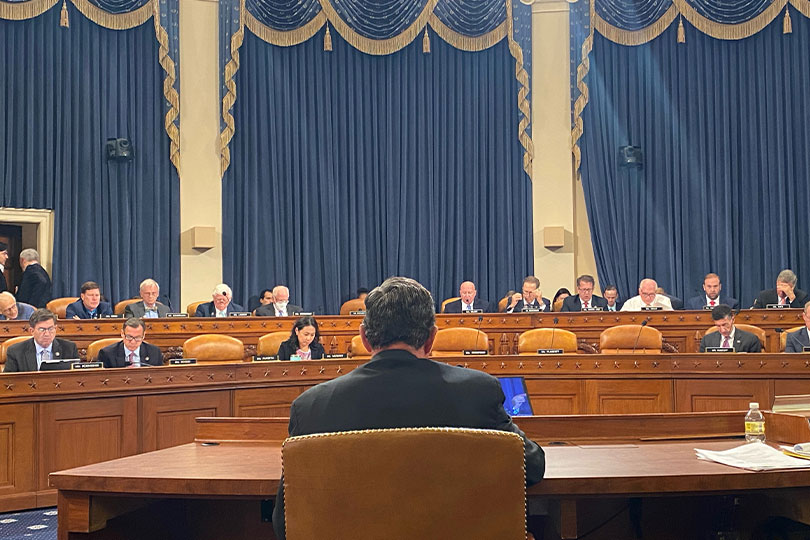By Julie Tomascik
Editor
Texas farmers and ranchers need strong, reliable trade agreements, including those in Taiwan and the Indo-Pacific region, to help grow demand and provide much-needed market certainty, Texas Farm Bureau (TFB) President Russell Boening told a U.S. House committee today.
The Biden administration earlier this year launched the proposed U.S. Taiwan Initiative on 21st Century Trade. But Farm Bureau believes the initiative falls short of being a robust trade agreement, noting the administration should address existing barriers and enforce a modernized trade agreement.
“Engagement in Taiwan and the entire Indo-Pacific region is critical for the continued growth of U.S. agricultural exports and the sustained economic health of America’s farmers and ranchers,” Boening testified before the U.S. House Ways and Means Committee.
In fiscal year 2021, the U.S. exported $3.94 billion of agricultural products to Taiwan. Leading domestic exports include soybeans, beef, wheat, poultry and fresh fruit.
Boening, however, noted the existing 15% import tariff on agricultural imports and other non-tariff barriers on U.S. beef and pork should be eliminated to increase more trade with the country.
“U.S. agricultural competitiveness is dependent on having a level playing field regarding tariffs, sanitary and phytosanitary measures, technical barriers to trade and other essential provisions,” said Boening, who grows feed grains, cotton and wheat, as well as operates a dairy and beef cattle operation in Poth.
Boening stressed the importance of the administration prioritizing trade by working toward stronger, comprehensive and enforceable agreements.
“I fear the administration is falling short of prioritizing international trade,” he said. “For instance, there is enormous potential to reduce trade barriers and strengthen agreements with the countries involved in the Indo-Pacific Economic Framework, as well as China and the United Kingdom. Ideas and frameworks are always welcome. However, they must be put into action to strengthen international trade and ensure the U.S. gains market access into other countries.”
Robust trade agreements benefit U.S. farmers, ranchers, businesses and the many other sectors that contribute to the U.S. economy.
“Without continued work to strengthen and create new agreements, the U.S. will only fall behind, and farm and ranch families will suffer the consequences,” Boening said. “We depend on importing and exporting goods with other countries for stable commodity markets and to ensure we can continue providing food and fiber worldwide.”

